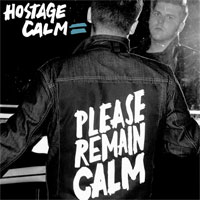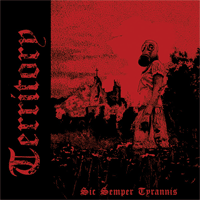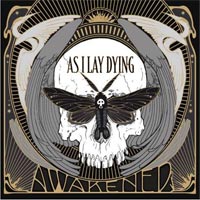
Wrecktrospective: 20 Years of Fat Music
Late in 2009, Fat Wreck Chords celebrated their 20th Anniversary with the release of a 3xCD box set titled “Wrecktrospective.” The set includes a first disc with 33 so-called “Fattest Hits,” a second disc with 28 demo tracks, and a third consisting of all 27 songs from the “Fat Club” 7″ series. Included in the package is an extensive foldout poster that features all sorts of band quotes about Fat, and a brief letter from label honcho Fat Mike about the labels origins and its roller coaster ride since that time. By all measures, it is a beautifully thorough collection and an appropriate testament to one of the most important punk rock labels of its time.
I have a huge amount of gratitude aimed at Fat Wreck. As I was beginning to figure out this whole punk think in 1994 and 1995, the label caught my attention through a $3 sampler titled “Fat Music For Fat People” (which if I have correct, went on to sell some 250,000+ copies). I bought my copy via mailorder and when it came several weeks later, it had a huge scratch on the playing surface that caused horrible skipping. Being an irrational teen not terribly familiar with independent music, ethics, and so forth, I jotted down a scathing letter to the label and accused them of intentionally selling damaged goods. To my incredible surprise, several weeks later came a new package from the label with not just a new copy of the compilation, but several other free CDs as well, and an apology letter written by Erin (Fat Mike’s wife) that schooled me hard on my rudeness and their honest mistake. That bit of personal customer service was something I simply had not experienced before. It wasn’t long until I was like most punk rock teens in the mid 90s, sporting WIZO, GOOD RIDDANCE, and STRUNG OUT t-shirts with the big Fat Wreck logo on the back. I’ve been a huge fan ever since.
In Spring 2010, I put together a series of questions for the label that goes into the mindset behind “Wrecktrospective.” Label manager Chad Williams (also a drummer in WESTERN ADDICTION), was happy to answer them. (A few were written with Fat Mike in mind, but I decided to keep them in the piece despite Williams answering the questions).
Pastepunk: More than a few people over the years have casually remarked that Fat Wreck is like a Dischord Records for the late 90s and 2000s in terms of ethos and its place as an influencer in punk rock. So it didn’t seem weird to me that the 3xCD “Wrecktrospective” release shares many similarities with Dischord’s 20th Anniversary set “20 Years of Dischord.” (Hits + rarities + detailed liner notes). Was that set at all an inspiration for “Wrecktrospective”? If not, did something else serve as a blueprint? How long did the whole take to assemble?
Chad Williams: Yeah, for sure. The Dischord box was proof that a label-oriented box set could be done in a way that was worthy of the material it contained. Not just a label sampler, but a high quality document of our history. Including previously unheard and hard-to-find music was crucial, and made it a really worthwhile endeavor, both for us to assemble, and for fans to listen to. We started the process of getting bands’ input and demos back in 2006. It got shelved for a couple years for various reasons; working on new releases took precedence, our staff was in transition, and we moved our entire operation, offices and warehouse, after nearly 15 years in our old building, which the City demolished. All in all, 3 years in the making, but the 2nd half of 2009 was when the really intense work went into the compiling of music and assembling the content of the packaging.
Pastepunk: For a label that effectively showed no interest in promoting ‘hits’, was it kind of strange to realize that through various compilations, videos, or genuine goodness, the label did in fact produce many actual ‘punk rock hits’ over the years? Songs like NO USE FOR A NAME’s “Soulmate”, LESS THAN JAKE’s “Gainesville Rock City,” or SNUFF’s “Martin” come to mind…
Chad: The word “hits” doesn’t necessarily need to be defined in the way the industry defines it, which is chart position and sales. Most of the songs on disc 1 (“Fattest Hits”) were never released as singles or had videos. They’re just the songs that ended up resonating most with the fans for whatever reason. Sometimes the song on a Fat comp is the introduction to a band for a lot of people, and that song becomes the most popular, like LAGWAGON’s “Violins”. Sometimes it’s just a song that turns out to be great live sing-along anthem like DEAD TO ME’s “By the Throat”.
Pastepunk: Disc two, “Demos,” is pretty incredible, both in terms of quality and depth. I imagine that was the hardest to put together – how’d you go about getting that material? Was it basically asking bands to dig through their pockets and find something to contribute or was the label aware of particular material that was targeted for this release? Do you listen to RISE AGAINST’s “Alive and Well” demo and marvel about how far they have traveled from the time that was recorded? How much material was left out, and could we see another ‘demos/rarities’ collection in the future?
Chad: A good chunk of the demos on disc 2 were the actual original demos that the bands submitted to Fat, so we already had those on hand and just got the bands’ permission to release them. For other songs, we had to ask bands to dig through their tapes and find us something interesting, which could take time. And others… I contacted Stan from THE DICKIES after finding their cassette demo of “My Pop the Cop”, and he had absolutely no recollection of ever recording it or sending it to us!
Most of the band demos we got contained anywhere from a handful of songs to an entire album’s worth. So there’s plenty more, but to be honest, a demo version of an entire album has the potential to get boring pretty quickly. We tried to pick the most interesting versions, ones that differed from the final version in some way.
Pastepunk: One humorous theme that has emerged about Fat Wreck over the years is that when it came to compilations, so many bands have said “Fat Mike said he needed a song for a compilation by the next day, so we just picked this track that was lying around… or… we just threw this together,” and yet the songs were usually some of the bands best works (STRUNG OUT comes to mind). I know we’re in a different era now with compilations and their purpose in the marketplace, but why did it seem like Mike was some kind of Compilation Overlord when it came to these kinds of releases?
Chad: Probably because Fat was one of the first labels to offer the cheap comp, only a few bucks, and give people a bunch of new material, either songs from new albums not yet released, or just one-off songs not used elsewhere. It was a great deal. Hey, the $3 “Fat Music For Fat People” comp is how I discovered GOOD RIDDANCE and PROPAGANDHI, still 2 of my favorite punk bands to this day.
Pastepunk: Between NOFX’s tremendous output and particular theme releases that Fat Wreck has run with (the “Live In A Dive” series; a commitment to b-sides/rarities/collections; reissues in some cases; unreleased material in the “Fat Music For Fat People” series; 7″ club, etc.), what drives this urge to document everything? Some bands and labels are circumspect about strip-mining the musical well, but I think it puts your money where your mouth is in saying it’s all about the music and focusing your business to truly please fans (sorry for all the cliches, gah…).
Chad: There’s no formula or grand plan. If our bands have good music they want to release, whether it’s a single, studio album, live album, or compilation, we’ll do it. I know b-sides records can seem like a cash-in, but believe me, we don’t sell enough of them to make any real money. We put those records out, like this upcoming GOOD RIDDANCE singles comp, Capricorn One, because the SONGS are good, and we want people to hear them.
Pastepunk: Building on [Mike's] personal story in founding the label that’s discussed in the “Wrecktrospective” notes, I want to know one thing. In 15 years, when your daughter asks you to co-sign a $40,000 loan to start her own record label, what’s your response? (In the booklet, Fat Mike describes the experience of asking his Dad to co-sign a loan for $20k.)
Chad: I can’t speak for Mike, but I would suggest starting a bit smaller, like Fat did, like most successful labels do. You put out your own band or a friend’s band, at a cost of a few hundred bucks and go from there. Above all you gotta do it for the love of the music.



